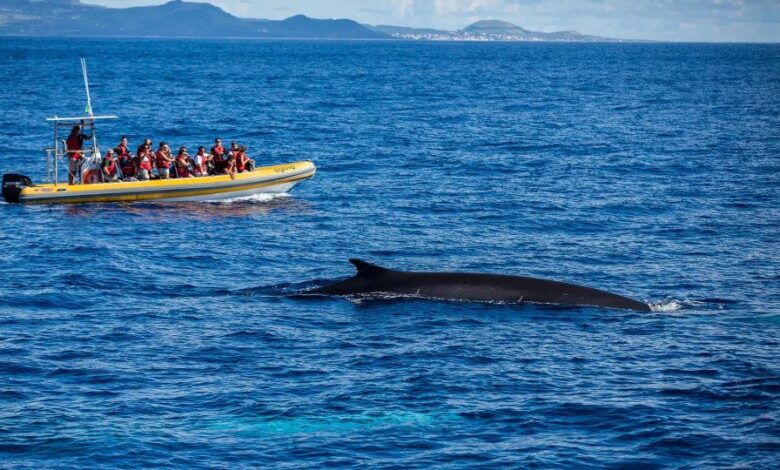
Once known for its whaling activity, the Azores archipelago, an autonomous region of Portugal, has shifted its economic focus to eco-tourism, conservation, and education.
“We developed a new and dynamic culture in which the whale took center stage as a creature of ecological, scientific, heritage, and tourist value,” explains Rui de Souza Martins, emeritus professor of Anthropology at the University of the Azores.
The Portuguese archipelago – located some 1,450 km west of Lisbon, in the Atlantic Ocean – is on the migration route of many whale species, including the blue whale and the fin whale, two of the largest animals on the planet—the 1982 moratorium on whaling forced the archipelago to transition away from its century-old economic practice. In 1990, the first whale-watching company was established on Pico Island. Today, some 20 whale-watching companies are operating across the Azores, all following global best practices and guidelines issued by the International Whaling Commission and local regulations. Whale-watching trips also benefit research as scientists collect data to study behaviours and migration patterns. In 2023, the Azores was recognized as a Whale Heritage Site – a place that achieved an “environmentally, socially and economically sustainable balance” between nature, the local community, and what visitors expect from the place – by the World Cetacean Alliance. It is the second site in Europe to receive such an accolade and the sixth in the world.



